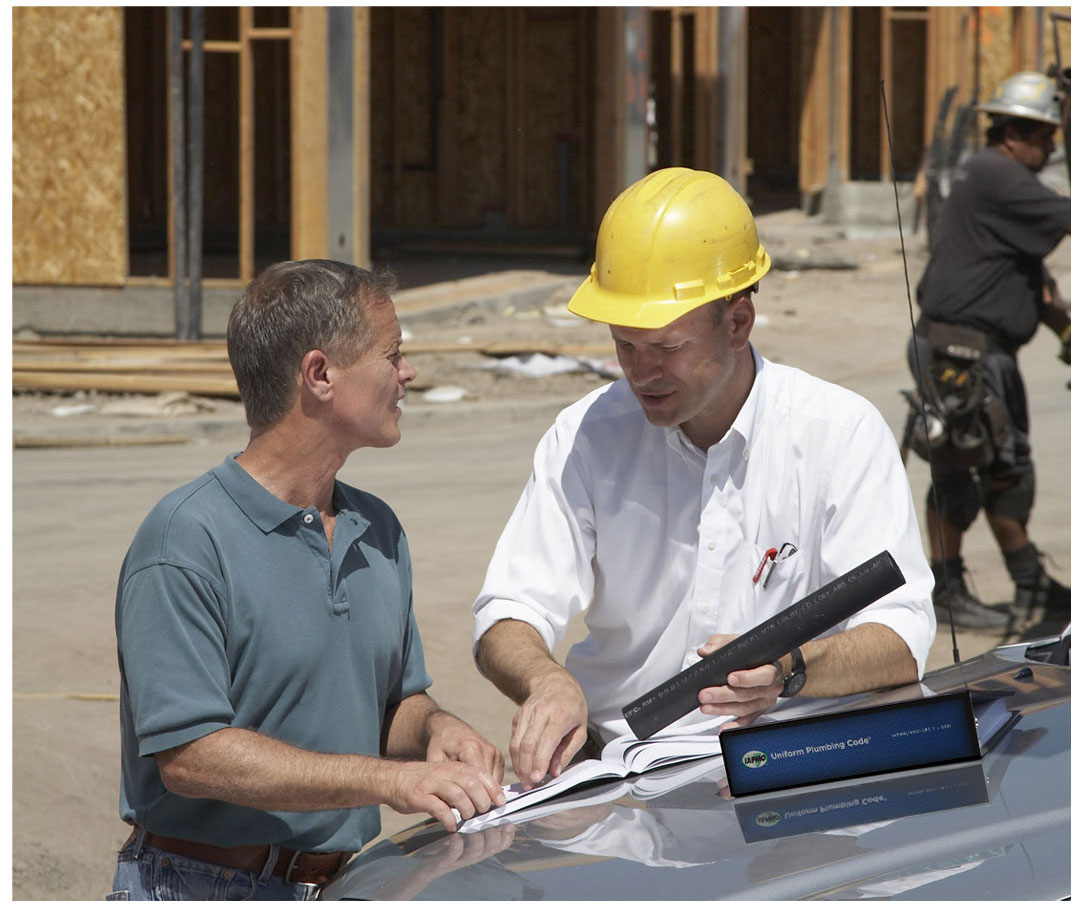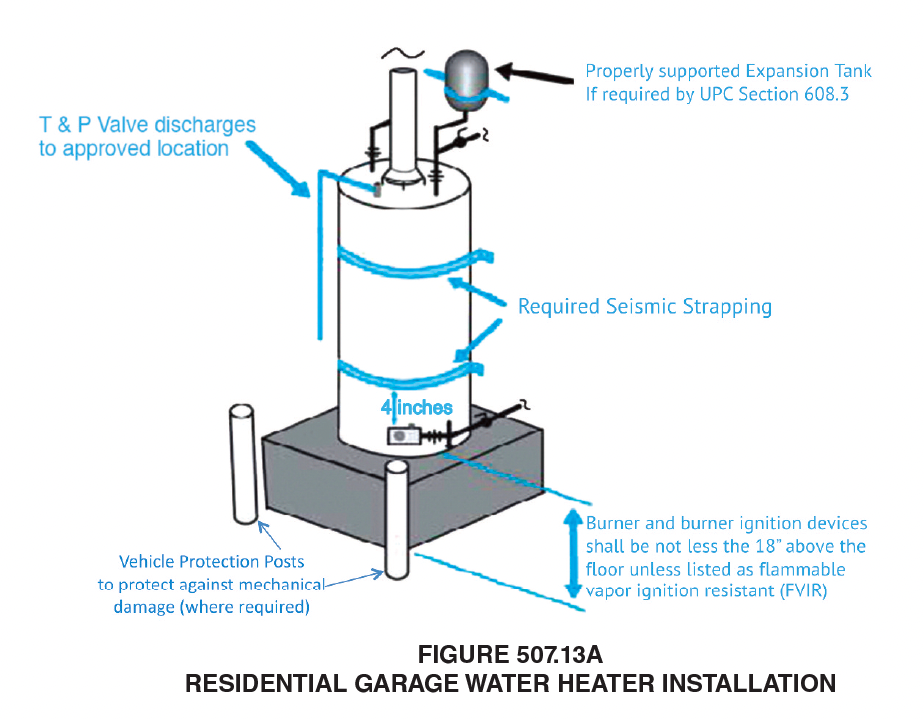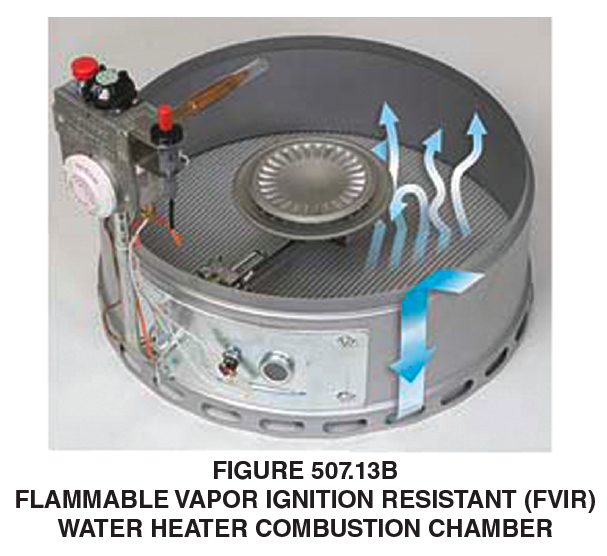June 8

From the 2021 UPC Illustrated Training Manual, Chapter 5, WATER HEATERS AND DISTRIBUTION
507.13 Installation in Residential Garages. Appliances in residential garages and in adjacent spaces that open to the garage and are not part of the living space of a dwelling unit shall be installed so that all burners and burner-ignition devices are located not less than 18 inches (457 mm) above the floor unless listed as flammable vapor ignition resistant. [NFPA 54:9.1.10.1]
This requirement for installation of the water heater controls at 18 inches above the floor is to minimize the possibility of igniting heavier-than-air flammable vapors that may be present in a garage, such as caused by spilled gasoline or solvents, unless the water heater is listed as flammable vapor ignition resistant (see Figure 507.13a).

Much concern has been voiced over the past several years regarding the ignition of flammable vapors by gas appliances, specifically residential water heaters. The standard for water heaters, ANSI Z21.10.1, Gas Water Heaters,Volume I—Storage, Water Heaters with Input Ratings of 75,000 Btu per Hour or Less, require that all residential water heaters pass a flammable vapor ignition-resistance test in order to be listed.
All water heaters manufactured and listed to ANSI Z21.10.1 will be resistant to the ignition of flammable vapors. The design used to enable the new water heaters to meet the flammable-resistance ignition test is based on the principle first used in the mine safety lamp. In a mine safety lamp, a fine mesh screen encloses an oil lamp flame. If flammable gas enters the screened area, the gas ignites but the flame does not propagate outside the screen. The flame is kept within the combustion chamber of the water heater and eventually causes a sensor to trip, disabling the water heater (see Figure 507.13b.

Some models are being built that allow the homeowner to reignite the pilot after the condition causing the outage is resolved. Others require a replacement of the water heater.
Note that direct-vent water heaters produced prior to June 30, 2005, are not tested as resistant to the ignition of flammable vapors and cannot be installed on the floor of a residential garage unless specifically listed for garage floor installation. Direct-vent heaters are not sealed tightly enough to prevent flame propagation outside the firing chamber. Direct-vent sealed combustion chamber water heaters are allowed to be installed directly on the floor in a garage.
The 2021 Uniform Plumbing Code Illustrated Training Manual is available for purchase here.
(This is not to be considered the official position of IAPMO, nor is it an official interpretation of the Codes.)

IAPMO
IAPMO develops and publishes the Uniform Plumbing Code®,the most widely recognized code of practice used by the plumbing industry worldwide; Uniform Mechanical Code®; Uniform Swimming Pool, Spa and Hot Tub Code®; and Uniform Solar Energy, Hydronics and Geothermal Code™ — the only plumbing, mechanical, solar energy and swimming pool codes designated by ANSI as American National Standards — and the Water Efficiency Standard (WE-Stand)™. IAPMO works with government, contractors, labor force, and manufacturers to produce product standards, technical manuals, personnel certification/educational programs and additional resources in order to meet the ever-evolving demands of the industry in protecting public health and safety.
Last modified: June 8, 2023
